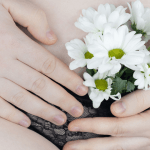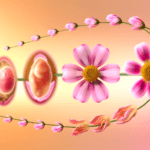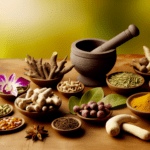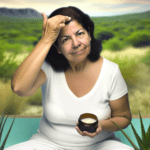By Chia Chia Sun, CEO, Damiva
Women have been taught and told to use various products, often as part of their normal regime that are easy to use, affordable, and have plenty of benefits. These commonly used products offered on the market, like condoms and lubricants, however, are not designed from the perspective of women’s health. With continuous use, these types of products will actually be detrimental for vaginal health – they dehydrate the vaginal membrane over time and women will experience unpleasant symptoms. So what exactly is a woman to use when facing vaginal dryness and the related discomfort? The answer is simple – completely natural products that are made without chemicals.
Chemicals disrupt the woman’s hormonal balance
As a woman approaches menopause, the decline in the production of estrogen is what causes changes to the vaginal wall. The result can be vaginal dryness which can make intimacy and time in the bedroom quite uncomfortable and even painful.
What many women don’t know is that several of these products they use as a quick solution contain chemical disruptors. In other words, chemical ingredients that can disrupt the natural hormone balance even more. So, even though many of the lubricants and moisturizers have a short-term instant effect that seems to be helping, they are actually making the problems of vaginal dryness worse and worse over time. These chemicals have adverse effects on a woman’s overall health.
There are chemical free alternatives
The good news is that there are all-natural alternatives that will benefit the health of the body and vaginal tract more, and improve the problems, the longer and the more consistently they are used.
Let’s start with kokum butter. Whether a woman is in menopause or not, fluctuations in estrogen levels can cause the vagina and surrounding connective tissue to lose elasticity. This causes the vaginal lining and tissue to become thinner and more fragile. Kokum butter is derived from the seeds of a fruit-bearing tree called the kokum tree. Kokum butter is highly moisturizing and is rich in essential fatty acids, which softens the vaginal skin and helps promote elasticity.Next is cocoa butter. This is a type of fat that comes from cocoa beans that helps form a protective barrier over the skin to hold in moisture. Cocoa butter is high in fatty acids and is known for its ability to hydrate and nourish the skin and also improve elasticity. Cocoa butter is also rich in natural plant compounds called phytochemicals, that increase blood flow and offer natural soothing abilities to the vaginal tract and labia skin.
Another natural product that offers great benefits is shea olein. Shea olein is made by fractionating shea butter, a fat obtained from the fruit of the shea tree. This wild tree can only be found in its natural state in Africa. Shea olein is extremely rare and highly praised for its high content of vitamin A and oleic acid, both of which have been proven to be extremely beneficial in softening and moisturizing the skin. Shea olein penetrates the skin quickly and is great for dry skin and has exceptional nourishing, protective, and reparative properties.
Vitamin E is a fat-soluble ingredient, meaning it’s able to penetrate deep into the skin and regenerate new skin cells. Vitamin E also has the ability to strengthen vaginal lining, combat dryness and soothe irritation. Vitamin E can also be used for relieving symptoms of vaginal atrophy, especially in women who are unable to undergo hormone therapy.
Argan oil, which is a plant oil produced from the kernels of the argan tree, also has beneficial properties for skin hydration. Argan oil offers properties that restore the barrier function and maintains the water-holding capacity of the skin in postmenopausal women. Daily consumption and/or topical application of argan oil supports skin elasticity of the vagina tract and labia.
Borage oil is derived from the seeds of the Borago officinalis plant, has anti-inflammatory properties and supports discomfort related to menopause. Borage oil also contains one of the highest amounts of ?-linolenic acid (GLA) that may help to correct essential fatty acid imbalances associated with PMS and menopausal symptomsHemp oil is produced from the hemp plant and contains an abundance of essential fatty acids that can help alleviate dry skin. Feminine care products that are made with hemp oil can be very effective when it comes to helping with vaginal dryness and vaginal discomfort.
All of these natural alternatives work great on their own, but what if they were combined all together? These seven ingredients combined have incredible properties to support your vaginal health and not disrupt the balance of your hormones. For women who are suffering from vaginal dryness and discomfort, using an all natural lubricant and moisturizer made from these ingredients can help women to keep the vagina healthy before and after menopause. Most women – over 85% in menopause – will experience vaginal dryness. And that dryness deteriorates over time. Think about wrinkles – they aren’t going anywhere once they appear. That is why all women need to use safe, effective vaginal products that they can moisturize with for decades.








